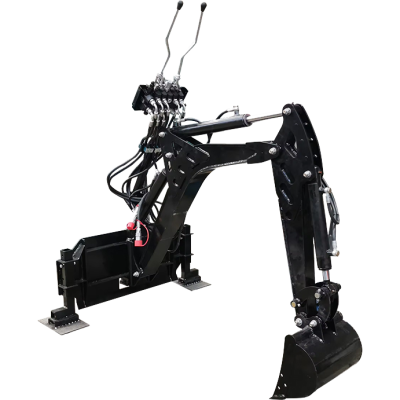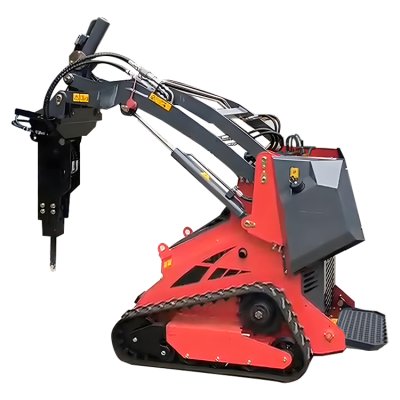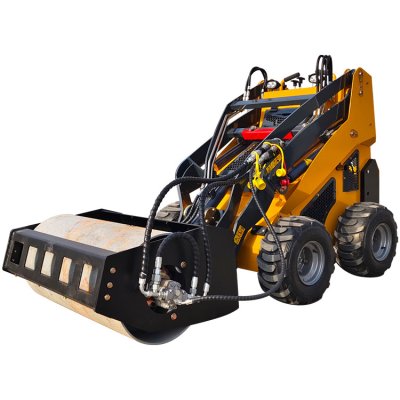Differences between tracked skid steer loaders and wheeled skid steer loaders
The main differences between tracked skid steer loaders and wheeled skid steer loaders are outlined in several aspects:
1. Drive System and Adaptability
- Tracked Skid Steer Loaders: Employ tracks as their means of propulsion, which are well-suited for soft, slippery, muddy, or uneven surfaces such as farmland, wetlands, dirt areas on construction sites, and rugged hillsides. Tracks provide a larger ground contact area and better traction, thereby reducing ground pressure and enhancing climbing and traversing capabilities over rough terrain.
- Wheeled Skid Steer Loaders: Utilize tires for movement and are more suitable for harder and flatter surfaces like roads, workshops, warehouses, and paved courtyards. Wheeled loaders travel at higher speeds on these surfaces, offer good stability, and generally produce less noise and wear on hard pavements.
2. Steering Mechanism and Maneuverability
- Both types of skid steer loaders allow for tight-radius turns, but the methods differ slightly. Wheeled skid steer loaders achieve zero-radius steering by independently varying the speed of the wheels on either side, whereas tracked loaders turn by adjusting the speed of both tracks.
3. Work Efficiency and Applications:
- Wheeled Skid Steer Loaders: Due to their higher speeds and superior performance on hard surfaces, they are particularly adept at tasks such as interior demolition, snow removal, road cleaning, and situations where frequent job site changes and quick turnaround times are required.
- Tracked Skid Steer Loaders: While slower in speed, they offer greater stability and load-bearing capability in complex terrains, making them more suitable for continuous heavy-duty tasks like excavation, loading, and other demanding jobsites in adverse conditions.
4. Maintenance Costs and Durability
- Tracked loaders generally have higher maintenance costs compared to wheeled ones, as track components experience higher wear rates and require regular inspection and replacement. However, the track system is often more resilient to extreme loads and prolonged rough usage.
5. Impact on Ground
- Wheeled skid steer loaders may exert greater ground pressure on soft or wet surfaces, potentially leading to increased slipping or sinking issues.
- Tracked loaders distribute ground pressure more evenly, minimizing damage to the underlying surface.
In summary, users should select the appropriate skid steer loader type based on specific working environments and project requirements to maximize operational efficiency and cost-effectiveness.






